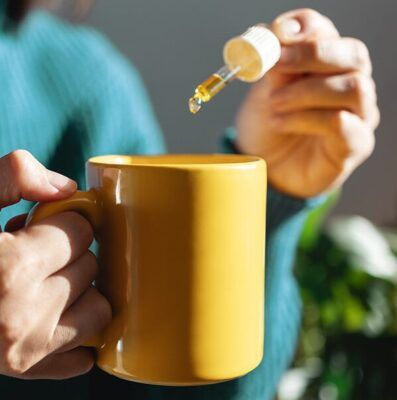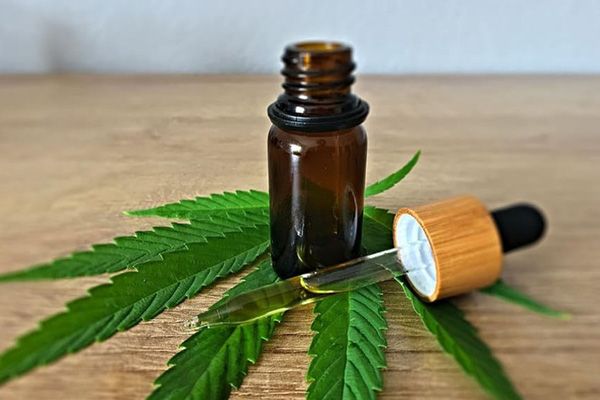Uncategorized
CBD Side Effects: Things You Should Know!
When CBD is applied topically or ingested orally, it is typically considered to be non-toxic. There are, however, some potential adverse effects to consider when using this compound, the majority of which are minor.
Common Side Effects of CBD
Drowsiness, digestive problems, dry mouth, decreased appetite, nausea, and interactions with other medications are the most frequent CBD side effects. These are all covered in further detail below.
Drowsiness
Drowsiness and sedation are some of the most common CBD side effects. This is sometimes considered a positive, but Dr. Jas Matharu-Daley, a physician and chief medical officer for a CBD company, warns that if you take CBD along with other sedative medicines, the effects may be too strong.

Gastrointestinal Issues
Still, “Depending on the individual and their medical history, some people may experience diarrhea or liver issues when taking CBD. This is determined by the patient and their medical history, so monitoring is essential,” points out Dr. Matharu-Daley.
Dry Mouth
Cottonmouth is another name for dry mouth and eyes caused by the use of CBD. CBD, like THC, has the ability to induce this side effect.
Can Interact With Other Medications
When you take cannabis, especially CBD oil or THC-dominant products, it’s crucial to talk to a health care professional about whether it’ll impact any of your existing medicines. According to Dr. Matharu-Daley, it’s critical to discuss this with your doctor if CBD might alter any of your current medications.
Nausea
According to Dr. Matharu-Daley, CBD users might feel nauseated in some circumstances. This is determined by the individual’s sensitivity to CBD as well as how much they take.
The amount of CBD that gets absorbed from CBD pills varies widely, owing to the many forms they may be delivered in—such as oils, gummies, tinctures, and vapors—as well as each individual’s bioavailability. This will also impact whether (and if any) CBD adverse effects you experience.
What Is Cannabidiol CBD?
The term “CBD” refers to cannabidiol, a chemical that’s generally derived from the hemp plant. In recent years, interest in CBD—the acronym for cannabidiol, a substance that is typically extracted from marijuana—has exploded. According on statistics, “CBD” as a Google search term remained constant between 2004 and 2014, but it has subsequently grown by up to 605%.
Cannabidiol, often known as CBD, is one of the many chemical compounds found in cannabis sativa, commonly known as marijuana. Humans consume two primary ingredients from the plant. THC and CBD are two separate components derived from the same source. THC and CBD are both cannabinoids that originate from a different part of the plant.
“CBD isn’t a intoxicating substance, whereas THC is a psychoactive chemical that can make you high,” explains Dr. Jas Matharu-Daley, a physician and consultant for a company that specializes in CBD production.”
“There are a few points to consider when determining if CBD is right for you,” says Sondra Lendroiti. “[One distinction is that] CBD comes from hemp and has been categorized as legal. Hemp contains less than 0.3% THC. Cannabis plants like marijuana, on the other hand, are cultivated to have considerably more THC and are still unlawful according to the FDA1, despite individual states varying as to their usage.”
Are There Any Benefits Associated With Using CBD?

There are a number of reasons why someone may want to use CBD. The chemical can be found in a variety of products, including pain-relieving creams, edible tinctures, and skincare products. Although further study is needed, scientists have become increasingly aware of how CBD may help when applied topically or ingested over the last several decades.1
“CBD has been studied more extensively since the discovery of the endocannabinoid system (ECS) in the body in the 1990s. The ECS is a key regulatory mechanism that restores normal balance and homeostasis in a number of human physiologic systems throughout the body and brain, contains cannabinoid receptors and compounds,” adds Dr. Matharu-Daley.
CBD benefits include the following:
- CBD has the ability to benefit the brain. Dr. Matharu-Daley adds that CBD is legally used in a particular drug for severe forms of epilepsy in children, with a beneficial impact on the brain.
- CBD also has anti-inflammatory effects, which is why you usually find it in topical treatments like oils, creams, and lotions.
- CBD’s ability to relieve stress and anxiety has been studied extensively.
- It has been used as a nausea medication in some nations.
- CBD oil, in particular, has been found to help lessen pain symptoms.
- It’s a powerful antioxidant, which means it might help you prevent free radical damage and thus prevent aging.
- CBD may help reduce excessive oil production in individuals with very oily skin, according to experts.
The most popular reason for the use of CBD is that it has soothing, relaxing, pain-reducing effects. It’s been used to cure joint and nerve pains, anxiety and stress, sleeplessness, migraines, and nausea.
CBD Is Still an Unregulated Substance
While it may seem as though CBD is a magic cure-all, there are still many unknowns about the substance. CBD is not regulated by the FDA, so dosages may not be reliable. It’s also tough to determine what an appropriate dose for your first time using a new product is.
“It is widely recognized that CBD derived from hemp grown under GMP might have higher levels of purity,” Dr. Matharu-Daley emphasizes. “If the CBD is from a reputable source and has been tested by an independent third-party laboratory, its content is more trustworthy. The CBD should be organically grown, free of pesticides and heavy metals, and not obtained from food in order to be absorbed correctly. In general, at low doses, CBD is quite safe while side effects are uncommon.”
A Word From Verywell
Cannabidiol, like most other cannabinoids, is not legal in the United States. Because of this, it should be treated with caution and only used under the supervision of a licensed health care professional. This is especially crucial for individuals who are using additional medications or have long-term medical problems. CBD’s advantages in relation to addressing mild to severe health issues, however, are promising and it is commonly regarded as a safe substance. According to health professionals, CBD does not effectively treat serious medical problems such as cancer.
As is the case with any type of vitamin, we recommend consulting your doctor before taking CBD. Your doctor might also suggest particular items that satisfy your requirements and help you receive the correct dose.



